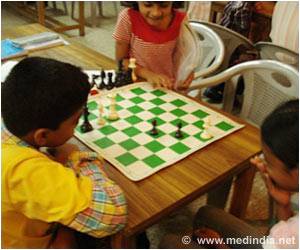In many cases you are better off thinking for yourself is the conclusion scientists have arrived in a new study that contests the old saying that two heads are better than one.

When it is something unexpected or requires creative thinking, individuals tended to fare better on their own - and speaking to others made them lose confidence.
Asher Koriat, of Haifa University in Israel, asked 38 people to answer a series of questions individually and in pairs. He asked them to say how confident they were in their answers in each case.
For general knowledge questions such as which of two European countries has the larger population, it was clear that two heads were better than one. And three heads were even better than two.
He then turned to trick questions - a series of pictures containing tricks of perspective - where the participants had to decide which line was longer or which object was bigger in a drawing intended to mislead.
He also asked questions that many people would get wrong, such as whether Sydney or Canberra is the capital of Australia.
Advertisement
In that test, when the study participants were asked to discuss the problem in pairs and come up with one answer, it was generally wrong. In fact, the pairs did on average worse than the worst individual.
Advertisement
His results suggested that people who were most confident in the answer they came up with on their own tended to be right.
So pairs could work better together if people were honest about how confident they were.
"In such cases it is the low-confidence individuals who are more likely to be correct, and reliance on the more confident members should lead the group astray," the Daily Mail quoted Koriat as saying.
The study has been published in the journal Science.
Source-ANI









